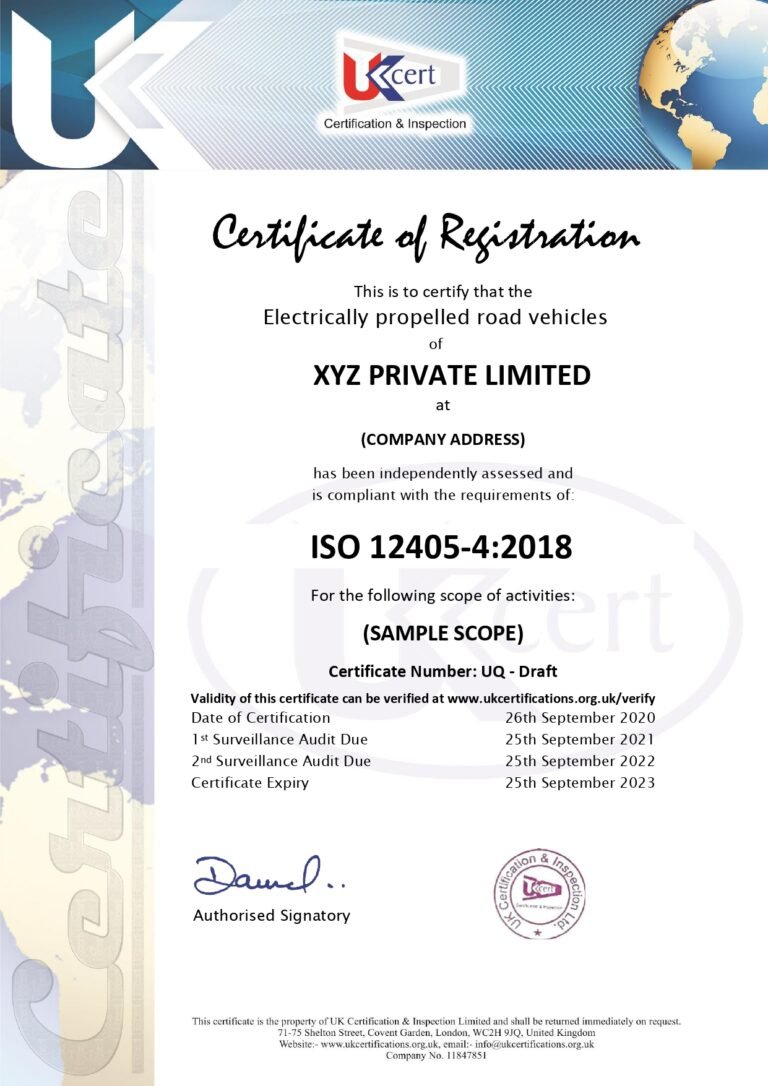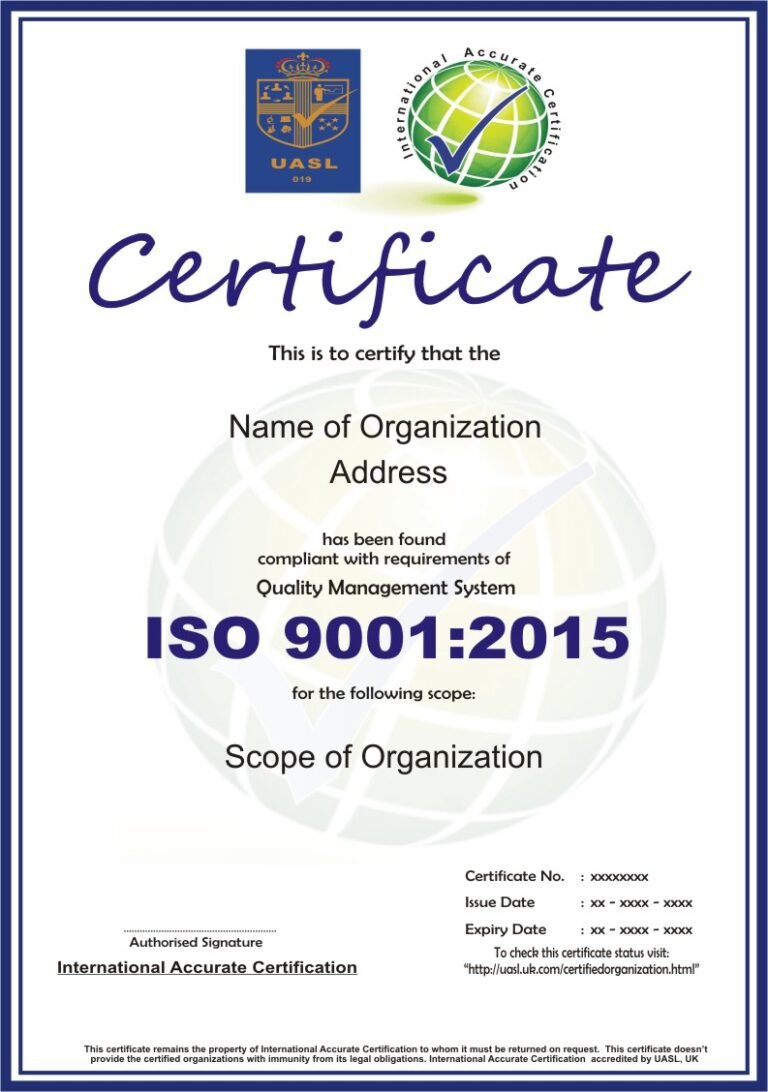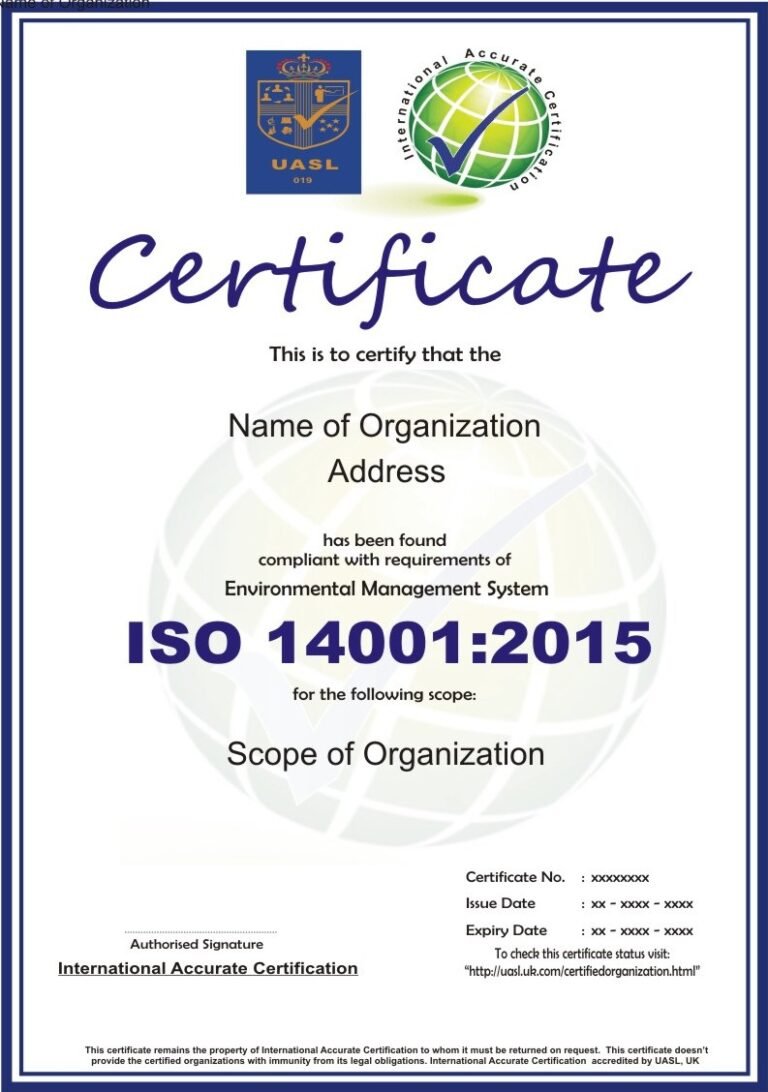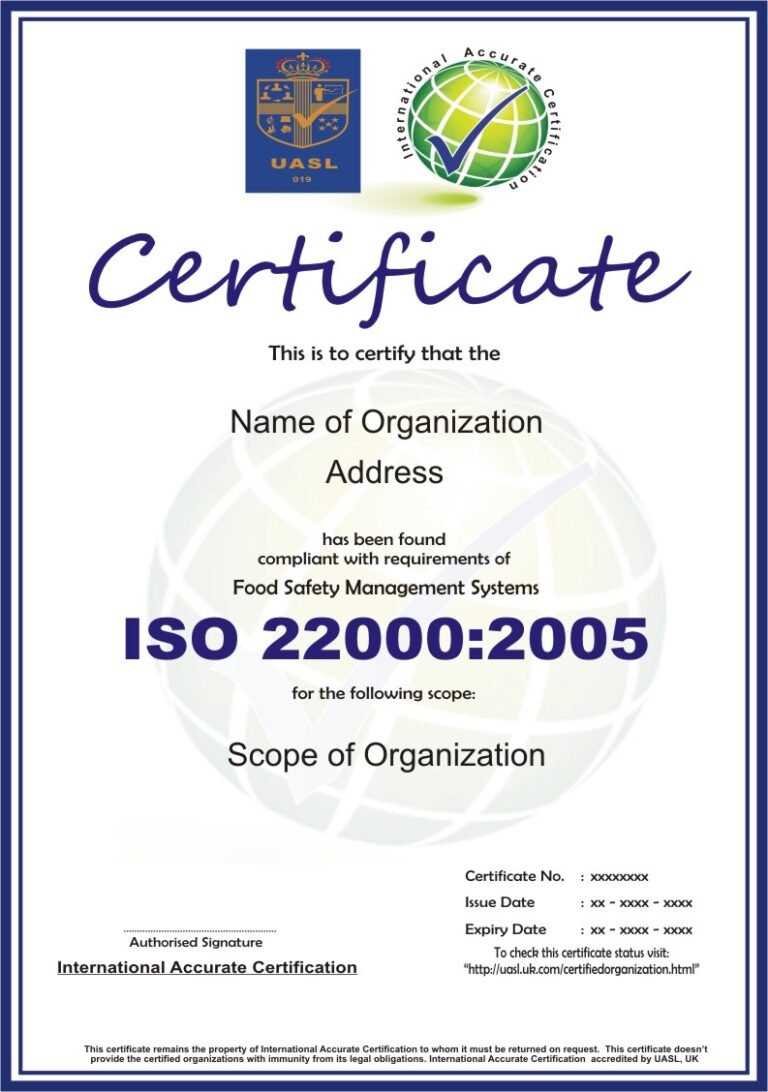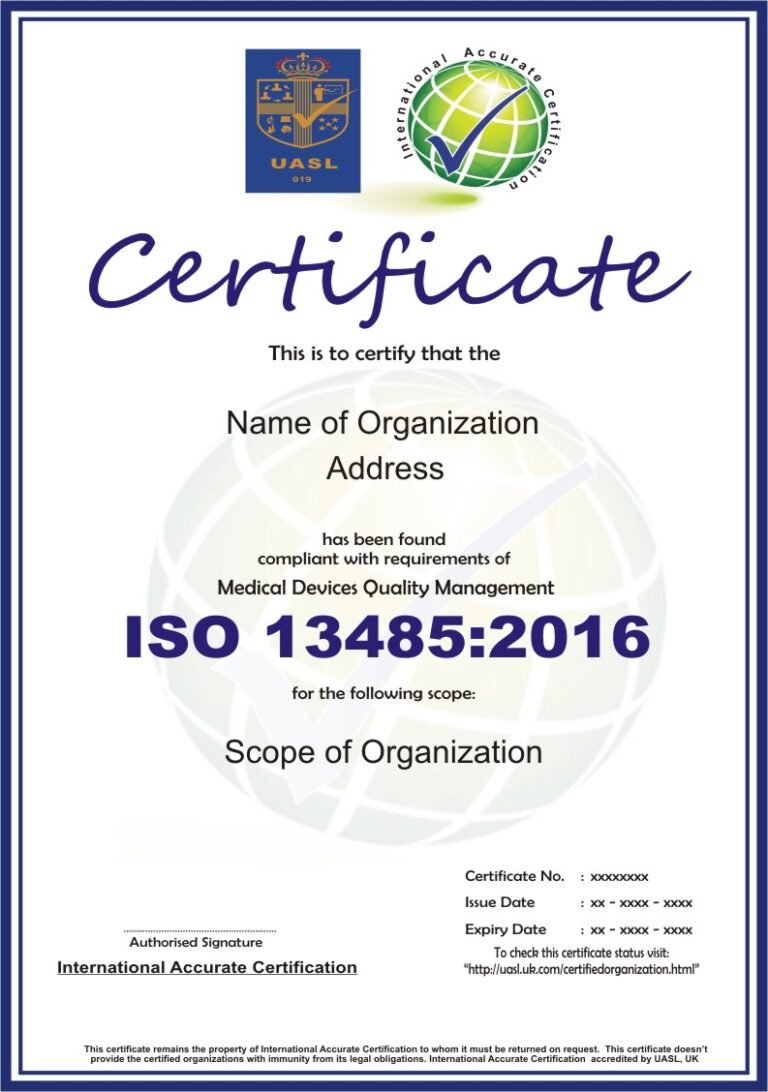Quality Certifications
ISO Certificate Registration
- 9001:2015
- 14001:2015
- 45001:2018
Each certification has its own set of standards and requirements. Some of the most common types of ISO certification are:
ISO 9000
One of the most common certifications is the ISO 9000, a grouping of standards that relates to quality management systems (QMS) and helps companies meet the needs of customers and other interested parties. It’s the most basic form of what the ISO has set out to accomplish.
ISO 9001
Companies choose the ISO 9001 to establish product conformance to standardized requirements. In this case, the product also refers to services, materials, hardware and software, and this certification relates more to the product a company supplies rather than the entity itself.
ISO 13485
The ISO 13485 is a sector-specific certification for the automotive industry. It outlines standards that automotive manufacturers and distributors are to uphold for quality and efficiency, which are especially useful in relation to the international shipping of vehicles.
ISO 14001
Relating to requirements for an environmental management system, the ISO 14001 is growing more prevalent because of consumer opinions concerning the impact of corporations on the environment. Entities with this certification control the effects of their general activities on both flora and fauna.
What is ISO certification?
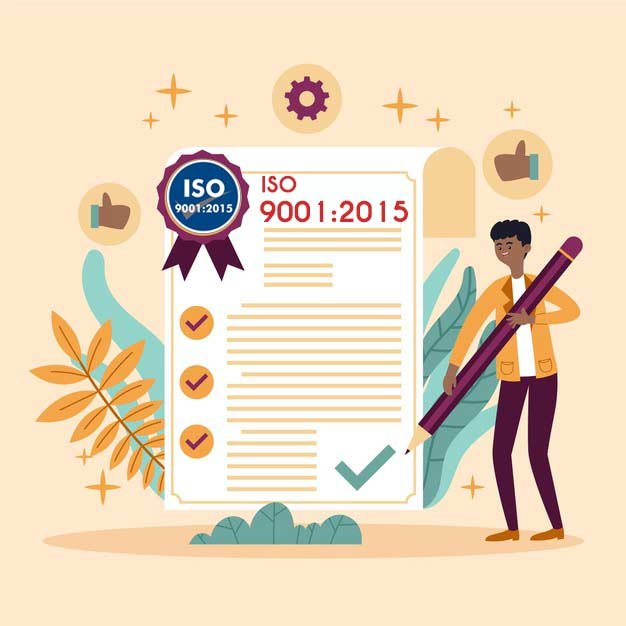
ISO certification is a credential that validates a business’s fulfillment of requirements relating to quality process standards as defined by the International Standards Organization (ISO). The ISO is a non-governmental organization that determines specifications for products, services and systems for quality and efficiency.
- Agriculture
- Health care
- Food safety
- Manufacturing
Get Benefits of ISO Certified:
- The production, development and supply of products and services become more safe and efficient.
- ISO certification sets new goals to be achieved and continuous improvement becomes possible to be achieved.
- It is also possible for the management of the organization certified to monitor the progress step by step to achieve the goals of standard products. Furthermore, productivity is increased as a result of improved process due to improved qualification of employees.
- International trade becomes fairer.
- Provision of safe products and services to consumers becomes possible.
- The ISO certified company can compete at international level.
- The new technologies which achieve the ISO certificate have the possibility to be implemented in the production process.
- The developing countries gain advanced technical knowledge when they have to implement the standers for production with their scares resources.
- Quality of life in general improves as everyone is ensured of the provision of safe products and services.
- Global environment is assured to be safe with International standers for goods and services to be produced which are environment-friendly.
Why get ISO certified?
ISO certifications serve as evidence that a business adheres to the ISO’s established standards, and they are acquired from external sources. By obtaining these certifications, businesses can instill confidence in their clients and other stakeholders, as they demonstrate the company’s commitment to efficiency and a pursuit of excellence in quality. Additionally, ISO certifications showcase a company’s dedication to key business objectives, including customer satisfaction and production. In fact, certain public and private sector organizations may require companies to obtain ISO certification before engaging in business transactions with them.
Is having an ISO certification mandatory?
There is no mandatory legal obligation to obtain an ISO certification. However, certain industries may require suppliers to have certification in order to work with them. For example, if you are in the business of supplying medical devices, it is likely that customers will expect you to have ISO 13485 certification. This is important as it provides customers with a level of assurance regarding the quality of the products supplied by the manufacturer.
ISO sounds great, can I just buy a certification?
This question has sparked significant debate and has led to differing opinions. Some companies offer software packages claiming to provide all necessary tools and a certification in record time. Be cautious of companies granting ISO certifications. The only recognized awarding body in the UK is UKAS (United Kingdom Accreditation Service). Certification bodies must be registered with UKAS. If they do not display the UK tick mark in their logo, they are not legitimate. Obtaining an ISO certification should not be viewed as a mere checkbox or a decoration on the wall. Instead, it should be considered as part of a process-oriented approach – a tool to help your organization meet customer expectations and drive growth. The most successful organizations with certifications are those that prioritize being excellent companies first, with certification being a secondary aspect. They typically already have quality assurance, document control, or management system standards in place. Certification simply confirms that you have effective controls and a deep understanding of your organization. To achieve certification, it is essential to have well-defined processes, procedures, and policies that are tailored to your organization and its operations.

